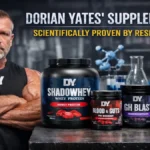When it comes to the efficiency and effectiveness of today’s combustion engines, fuel injectors play a pivotal role. These high-tech parts assure efficient combustion, power output, and fuel efficiency by transferring gasoline to the cylinders with pinpoint accuracy. Learn how fuel injectors operate, why they’re crucial to your engine’s performance, how to keep them in top shape, and how to diagnose and fix common issues. So, let’s explore the amazing world of fuel injectors and see how they help our cars run smoothly.
How Fuel Injectors Work
In an internal combustion engine, fuel is sprayed into the combustion chamber by tiny electrical valves known as fuel injectors. The engine control unit (ECU) sends them signals indicating how much gasoline the engine needs based on the current conditions. For optimal combustion, the fuel is atomized under high pressure into a fine mist.
Types of Fuel Injectors
Throttle Body Injection (TBI)
Vehicles originally employed a fuel injection technique called Throttle Body Injection (TBI). There are either one or two injectors at the throttle body. TBI systems are less widespread now than they once were, but they are well-known for being easy to use and inexpensive.
Multi-Point Fuel Injection (MPFI)
Most current cars utilize a more sophisticated technique called Multi-Point Fuel Injection (MPFI). To ensure that the correct amount of fuel is being delivered to each cylinder, numerous injectors are placed in close proximity to the intake valves. When compared to TBI, MPFI systems are superior in terms of both performance and fuel economy.
Direct Injection (DI)
The most modern and effective kind of fuel injection is called direct injection, or DI for short. Increased efficiency and power output are the results of fuel being injected directly into the combustion chamber. These days, most high-performance automobiles have DI systems.
Benefits of Fuel Injectors
Improved Fuel Efficiency
Fuel injector allow for precise and regulated fuel delivery, leading to more efficient combustion. This improves fuel economy, which lowers operating costs and has less of an effect on the environment.
Enhanced Engine Performance
Fuel injectors help engines run more efficiently by establishing the correct air-fuel ratio for combustion. They allow for quicker reactions to the accelerator, more power, and less jerkiness.
Precise Fuel Delivery
Precision fuel distribution is provided by fuel injectors, which is essential in today’s engines due to the complexity of pollution control systems. They permit the engine to run with the optimum air-fuel ratio, lowering emissions and guaranteeing conformity with ecological norms.
Fuel Injector Maintenance
Fuel injectors need routine maintenance to last a long time and function properly. Important preventative measures include:
Regular Cleaning
Deposits can build up on gasoline injectors and eventually clog them. These deposits can be removed and fuel flow normalized by utilizing fuel injector cleaners on a regular basis.
Fuel Additives
Cleaning the injector and avoiding carbon buildup can be aided by using fuel additives that contain detergents. These additives keep injectors running smoothly and increase fuel quality.
Proper Fuel Filter Replacement
Reduced fuel flow and increased injector wear might result from a fuel filter that is unclean or blocked. In order to avoid interruptions in fuel flow, it is crucial to replace the fuel filter at the intervals recommended by the manufacturer.
Troubleshooting Common Fuel Injector Issues
Over time, fuel injectors wear out just like any other part. Some frequent issues and their possible origins are listed below:
Clogged Injectors
The buildup of grime, debris, or fuel deposits can lead to a clogged system. Rough idling, low gas mileage, and engine misfires are all signs of the problem. Maintaining a clean system and utilizing high-quality fuel helps reduce the likelihood of buildup.
Leaking Injectors
When injectors leak, fuel is wasted, performance drops, and the engine could be damaged. Smelly gas, less power, and a sputtering engine are all symptoms. The sooner it’s fixed or replaced, the fewer problems there’ll be.
Faulty Injectors
Uneven or no fuel delivery is possible if the injector are faulty. There may be engine misfires, less power, and more pollutants as a result. Faulty injectors should be checked out by experts for diagnosis and repair.
Upgrading Fuel Injectors
If you’re a gearhead who wants to give your ride a performance boost, try getting new fuel injectors. Here are two of the most common choices:
Performance Injectors
To match the increased fuel volume required by upgraded engines, performance injector are built. They are typically employed in high-performance settings that call for an increased supply of fuel.
High-Flow Injectors
Increased fuel flow rates are available with high-flow injector and the spray pattern is unaffected. They can be used in situations that call for more gasoline to be delivered without extensive engine alterations.
Conclusion
The fuel injector plays a crucial role in the smooth operation of today’s engines. They enhance engine performance and fuel economy by maximizing fuel delivery. Vehicle owners may ensure their engines run smoothly and efficiently by learning about the function of fuel injector, doing routine maintenance, and fixing any problems as soon as they arise.
FAQs
Can I clean fuel injectors myself?
While do-it-yourself fuel injector cleaning kits are available, experts advise against using them due to the risk of harm and the lack of guarantee of effective cleaning.
How often should fuel injectors be replaced?
In general, fuel injectors last for a very long time. However, if they become defective or develop serious problems, replacement is required per the manufacturer’s guidelines.
Are high-performance injectors suitable for all vehicles?
High-performance injector are made for modified engines that need more fuel. It’s possible that standard or mildly modified automobiles can’t use them.
Can using low-quality fuel damage fuel injectors?
Injectors can become clogged with low-quality or contaminated gasoline, resulting in diminished performance and even severe damage over time. Fuel of the highest grade from trusted suppliers should be used.
Are fuel injectors covered by warranty?
The fuel injectors in your car may or may not be covered by the manufacturer’s warranty, depending on the make and model. Refer to the vehicle’s warranty paperwork or get in touch with the manufacturer for specifics.











